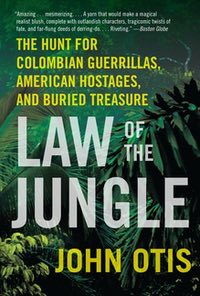
Colombia’s June 19 presidential election had a historic result: the first left-of-center government in the country’s modern history. Gustavo Petro, a former guerrilla who demobilized over 30 years ago, will be sworn in to the presidency on August 7. His running mate, Afro-Colombian social movement leader and environmental defender Francia Márquez, will be Colombia’s next vice president.
WOLA’s director for the Andes, Gimena Sánchez-Garzoli, was in Colombia on election day, and has a lot to share about what she saw and heard. She and host Adam Isacson talk about what made Petro’s victory possible—including high levels of popular discontent. They discuss the political transition so far, the immediate challenges of governability and tax revenue, implications for implementing Colombia’s 2016 peace accord, and hope for greater participation of women, Afro-descendant, Indigenous, and LGBTI Colombians.
The discussion covers areas of potential disagreement with a U.S. government that has long made Colombia its largest aid recipient, including drug policy, trade, and Venezuela policy. Sánchez and Isacson also discuss new areas of potential U.S.-Colombian cooperation, including judicial strengthening and implementation of peace accord commitments that could stabilize long-ungoverned territories.
Links to recent WOLA analysis of Colombia’s elections:
- Gimena Sánchez-Garzoli interviewed on the Intercept’s “Deconstructed” podcast, June 24.
- “A fresh start for Colombia … and for US policy?” by Adam Isacson at Responsible Statecraft, June 22.
- “Colombia Made History. The U.S. Should Join it,” by Carolina Jiménez Sandoval, June 20.
- “Colombia’s politics are changing dramatically. U.S. policy must change too,” by Gimena Sánchez-Garzoli and Adam Isacson, June 16.
- “While Eyes Focus on Colombia’s Presidential Elections, Abuses Continue,” by Gimena Sánchez-Garzoli, June 9.
- “Colombia, ‘aliado principal de Estados Unidos’: ¿qué significa?” by Gimena Sánchez-Garzoli at Razón Pública, June 5.
- “¿Cómo será la relación del próximo presidente con Estados Unidos?” by Adam Isacson at Razón Pública, June 5.
- “Colombia Elections: ‘The Next President is Either Going to Effectively Kill the Peace Accord or Save it,” by Gimena Sánchez-Garzoli and Adam Isacson, May 30.
- “Colombia’s High-Stakes Presidential Elections: What You Need to Know,” by Gimena Sánchez-Garzoli, May 25.
Download the podcast .mp3 file here. Listen to WOLA’s Latin America Today podcast on Apple Podcasts, Spotify, iHeartRadio, or wherever you subscribe to podcasts. The main feed is here.
July 11, 2022







